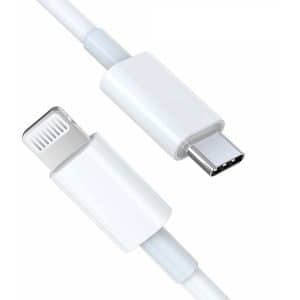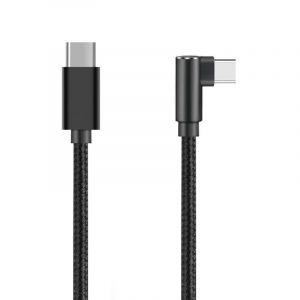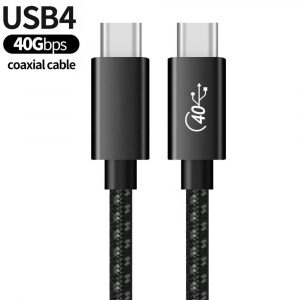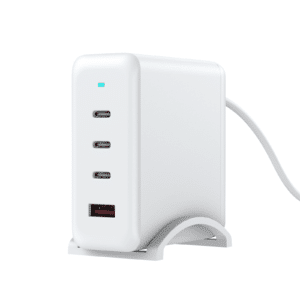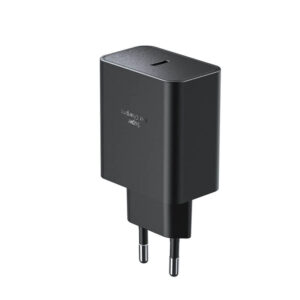Battery Capacity Difference from iPhone 1 to iPhone 16
Since the release of the first iPhone (iPhone 2G) in 2007, Apple’s iPhone series has been at the forefront of smartphone innovation. With each new model, advancements in features often come with corresponding improvements in hardware, including battery capacity—an essential factor for device longevity. In this blog, we’ll take a journey through the history of iPhone battery capacities and explore the reasons behind these changes.
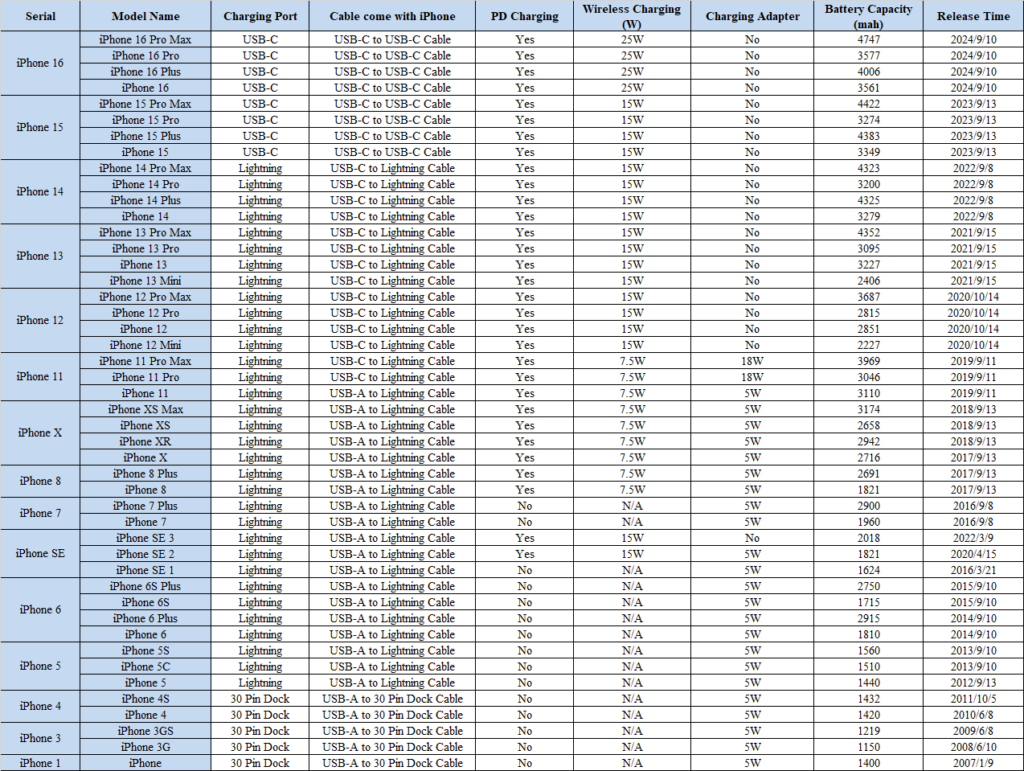
Through comparison, the battery capacity of the latest iPhone 16 series has now reached 4747mAh in the iPhone 16 Pro Max. This marks an increase of over 3000mAh compared to the first iPhone.

Summarizing the data into a bar chart, we can see that the iPhone 16 Pro Max tops the list, with a capacity surpassing 4500mAh, reaching 4747mAh. Closely following is the iPhone 15 Pro Max, with a capacity of 4422mAh. Then, models like the iPhone 15 Plus, iPhone 13 Pro Max, iPhone 14 Plus, and iPhone 14 Pro Max all have capacities exceeding 4300mAh. Additionally, the iPhone 16 Plus is another model that has surpassed the 4000mAh mark.
iPhone 16 Series
The iPhone 16 and 16 Plus are equipped with the A18 Bionic chip, while the Pro series features the more powerful A18 Pro chip. In terms of screen sizes, the iPhone 16 and 16 Plus have 6.1-inch and 6.7-inch displays, respectively, while the Pro and Pro Max come with 6.3-inch and 6.9-inch screens.
The entire series supports 45W wired fast charging and 25W MagSafe wireless charging, and they all have IP68 water resistance. The Pro series also boasts a titanium frame, Dynamic Island feature, emergency satellite communication (available in the US and Europe), and will introduce AI functionality next year.
iPhone 16: 3561mAh
iPhone 16 Plus: 4006mAh
iPhone 16 Pro: 3577mAh
iPhone 16 Pro Max: 4747mAh

iPhone 15 Series
The iPhone 15 and 15 Plus are powered by the A16 Bionic chip, while the Pro series is equipped with the more powerful A17 Pro chip. In terms of display, the iPhone 15 and 15 Plus feature 6.1-inch and 6.7-inch screens, respectively, while the Pro series has the same sizes but supports ProMotion high refresh rate technology.
The entire series supports 20W wired fast charging and 15W MagSafe wireless charging, and all models are rated IP68 for water resistance. The Pro series also features a titanium frame, Dynamic Island design, and emergency satellite communication capability.
iPhone 15: 3349mAh
iPhone 15 Plus: 4383mAh
iPhone 15 Pro: 3274mAh
iPhone 15 Pro Max: 4422mAh

iPhone 14 Series
The iPhone 14 and 14 Plus are powered by the A15 Bionic chip, while the Pro series is equipped with the A16 Bionic chip. In terms of display, the iPhone 14 and 14 Plus have 6.1-inch and 6.7-inch screens, respectively, while the Pro series shares the same sizes but supports ProMotion adaptive refresh rate technology.
The entire series supports 20W wired fast charging and 15W MagSafe wireless charging, with IP68 water resistance. The Pro series also features the Dynamic Island design and offers enhanced camera capabilities.
iPhone 14: 3279mAh
iPhone 14 Plus: 4325mAh
iPhone 14 Pro: 3200mAh
iPhone 14 Pro Max: 4323mAh

iPhone 13 Series
The entire iPhone 13 series is powered by the A15 Bionic chip. In terms of display, the iPhone 13 mini features a 5.4-inch screen, the iPhone 13 and 13 Pro have 6.1-inch displays, and the 13 Pro Max comes with a 6.7-inch screen.
For charging, the series supports 20W wired fast charging and 15W MagSafe wireless charging, with IP68 water resistance. As for special features, the Pro series supports ProMotion technology, offering a high refresh rate display for a smoother user experience.
iPhone 13: 3227mAh
iPhone 13 mini: 2406mAh
iPhone 13 Pro: 3095mAh
iPhone 13 Pro Max: 4352mAh

iPhone 12 Series
The iPhone 12 series is powered by the A14 Bionic chip. In terms of display, the iPhone 12 mini has a 5.4-inch screen, the iPhone 12 and 12 Pro feature 6.1-inch displays, and the 12 Pro Max comes with a 6.7-inch screen.
The series supports 20W wired fast charging and 15W MagSafe wireless charging, with IP68 water resistance. The highlight of the Pro series includes the LiDAR scanner and ProRAW photography, offering a more professional shooting experience.
iPhone 12: 2851mAh
iPhone 12 mini: 2227mAh
iPhone 12 Pro: 2815mAh
iPhone 12 Pro Max: 3687mAh

iPhone 11 Series
The iPhone 11 series is powered by the A13 Bionic chip. In terms of display, the iPhone 11 features a 6.1-inch screen, the iPhone 11 Pro has a 5.8-inch display, and the 11 Pro Max comes with a 6.5-inch screen.
The series supports 18W wired fast charging and wireless charging, with IP68 water resistance. The highlight of the Pro series is its powerful triple-camera system, offering enhanced photography capabilities and a more flexible shooting experience.
iPhone 11: 3110mAh
iPhone 11 Pro: 3046mAh
iPhone 11 Pro Max: 3969mAh

iPhone X Series
iPhone XS Series
The iPhone XS series is powered by the A12 Bionic chip. In terms of display, the iPhone XS features a 5.8-inch screen, while the iPhone XS Max has a 6.5-inch screen, both equipped with Super Retina OLED displays. The series supports 18W wired fast charging and wireless charging, and has IP68 water resistance. Special features include the introduction of the dual-camera system, Face ID, and for the first time, support for dual SIM functionality.
iPhone XR
The iPhone XR is also powered by the A12 Bionic chip and comes with a 6.1-inch Liquid Retina LCD display. For fast charging, it supports 18W wired fast charging and wireless charging, with an IP67 water resistance rating. Special features include Face ID, a single-camera system, and a variety of color options.
iPhone X
The iPhone X is powered by the A11 Bionic chip and features a 5.8-inch Super Retina OLED display. The series supports 18W wired fast charging and wireless charging, with IP67 water resistance. The iPhone X is the first iPhone to adopt a full-screen design, eliminating the Home button, supporting Face ID, and featuring a dual-camera system.
iPhone XS: 2658mAh
iPhone XS Max: 3174mAh
iPhone XR: 2942mAh
iPhone X: 2716mAh

iPhone 8 Series
The iPhone 8 series is powered by the A11 Bionic chip. In terms of display, the iPhone 8 features a 4.7-inch Retina HD display, while the iPhone 8 Plus has a 5.5-inch Retina HD display.
The entire series supports 18W wired fast charging and wireless charging, with an IP67 water resistance rating. Special features include a classic design that retains the Home button and Touch ID, and for the first time, support for wireless charging.
iPhone 8: 1821mAh
iPhone 8 Plus: 2691mAh

iPhone 7 Series
The iPhone 7 series is powered by the A10 Fusion chip. In terms of display, the iPhone 7 features a 4.7-inch Retina HD display, while the iPhone 7 Plus has a 5.5-inch Retina HD display.
Although it does not support fast charging, the series supports 5W wireless charging and has an IP67 water resistance rating. Special features include the iPhone 7 Plus being the first to feature a dual-camera system, the removal of the 3.5mm headphone jack, and continued support for Touch ID.
iPhone 7: 1960mAh
iPhone 7 Plus: 2900mAh

iPhone 6 Series
The iPhone 6 series is powered by different processors: the iPhone 6 and 6 Plus feature the A8 chip, while the iPhone 6s and 6s Plus are equipped with the A9 chip. In terms of display, the iPhone 6 has a 4.7-inch screen, and the 6 Plus features a 5.5-inch screen; the screen sizes for the 6s series are the same.
Although the series does not support fast charging, it does support 5W charging. There is no official water resistance rating for this series. Special features include the introduction of 3D Touch technology in the iPhone 6s series and the debut of a larger screen design with the iPhone 6 Plus.
iPhone 6: 1810mAh
iPhone 6 Plus: 2915mAh
iPhone 6S: 1715mAh
iPhone 6S Plus:2750mAh

iPhone 5 Series
The iPhone 5 series features different processors: the iPhone 5 and iPhone 5c are powered by the A6 chip, while the iPhone 5s is equipped with the A7 chip (the first 64-bit chip). All three models have a 4-inch Retina display.
The series does not support fast charging and lacks official water resistance certification. Special features include the introduction of Touch ID fingerprint recognition in the iPhone 5s, while the iPhone 5c is known for its colorful plastic casing design.
iPhone 5: 1440mAh
iPhone 5C: 1510mAh
iPhone 5S: 1560mAh

iPhone 4 Series
The iPhone 4 series is powered by different processors: the iPhone 4 features the A4 chip, while the iPhone 4s is equipped with the A5 chip. Both models have a 3.5-inch Retina display.
The series does not support fast charging and lacks official water resistance certification. Special features include the introduction of a glass body design in the iPhone 4, and the iPhone 4s being the first model to include the Siri voice assistant.
iPhone 4: 1420mAh
iPhone 4S: 1432mAh

iPhone 3 Series
The iPhone 3G is powered by an ARM11 processor, while the iPhone 3GS is equipped with a 600MHz Cortex-A8 chip. Both models feature a 3.5-inch LCD display.
The series does not support fast charging and lacks official water resistance certification. Special features include the iPhone 3G being the first to support 3G networks, while the iPhone 3GS offers significant improvements in performance and speed.
iPhone 3G: 1150mAh
iPhone 3GS: 1219mAh

First iPhone
The original iPhone featured a 1400mAh battery and marked the beginning of a new era for smartphones. It supported multi-touch functionality, setting the stage for all subsequent iPhone models.
First iPhone: 1400mAh

Conclusion
As smartphone functionality continues to expand and user demands grow, battery capacity has become one of the key indicators of phone performance. From the 1400mAh of the original iPhone to the impressive 4747mAh of the latest iPhone 16 Pro Max, Apple has made significant advancements in battery capacity. This change not only reflects technological progress but also addresses the urgent need for improved battery life among users. A larger battery capacity means longer usage times, especially in high-demand scenarios such as gaming, video streaming, or extended social media interaction, which are crucial for enhancing the user experience.
Moreover, the increase in battery capacity has been accompanied by improvements in charging technology. From the initial 5W standard charging to the current 45W wired fast charging and 25W MagSafe wireless charging, iPhone users can charge their devices more quickly, reducing wait times. Additionally, with ongoing advancements in chip technology, such as the high energy efficiency design of the A18 Bionic chip, even with increased battery capacity, the overall energy consumption of the devices remains within reasonable limits. These advancements collectively drive significant improvements in smartphone battery life, providing users with a more reliable and enduring mobile computing experience.
Related Products
Wandkey Electronic Co.,Ltd is a specialized manufacturer of phone accessories, including MFI Certified iPhone Lightning Cables, USB Type-C Cables (2.0/3.0/3.1/3.2 Gen 2/USB4), Micro USB Cables, PD Fast Charging Gan Wall Chargers, Car Chargers, and more. Our products are UL/CE/RoHS/FCC/UKCA certified, ensuring the highest level of quality and safety. supports OEM/ODM service, printing logo, customized packaging, color, length, mould etc. Welcome to contact us get the quotation and samples for the test.
Any questions feel free to contact us, we would be happy to solve your issues
Top Topics
2024 Latest MFi Authorized Manufacturers list
Differences of Lightning Connector
How to check MFI Certification
How to get MFI Certification for Your Brand?
Why does the MFI Certified Lightning Cable so expensive?
MFI Product Packaging Requirement?
Disassemble MFI Lightning Cable
How do we guarantee the quality?
How to identify counterfeit or uncertified Lightning connector accessories
How to Choose Fast Charging Cable for Your Phone
How do I choose a USB-C cable?
Differences between USB 3.0 3.1 and 3.2
Test on USB C to USB C 3.1 Cable


